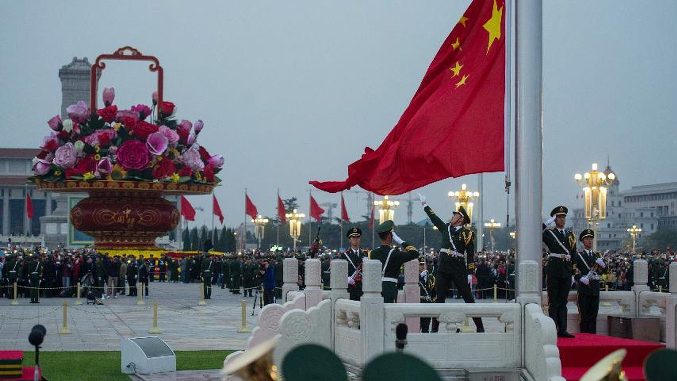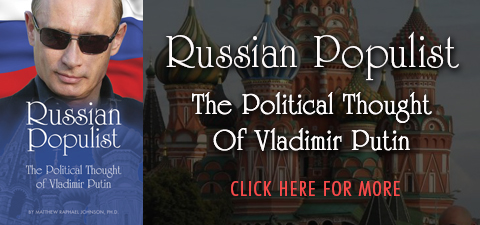
As long predicted, the dollar’s dominance on the world’s economic stage is wavering and likely to completely collapse soon given the move away from the dollar by Russia, Iran, and China.
By Matthew Raphael Johnson
Many have been predicting it. This writer spoke of it as early as 2004. The elite have dreaded it. It’s finally happened. The dollar is soon to be removed as the trading currency for oil and other commodities among Russia, Iran, and China. The effect on the U.S. economy will be catastrophic. However, in the long run it will serve to force the U.S. into a regional, rather than a global role.
The Industrial and Commercial Bank of China (ICBC) began operations in Moscow starting in mid-March 2017. The sole purpose was to act as a new intermediary for international commodity and energy trade. Iran has already declared its interest in following suit.
Bug Out While You Still Can! Learn More…
At the end of 2015, the Russian central bank officially announced China’s currency, the yuan, as a reserve currency. It took several more years to build the infrastructure to handle a radical shift of this kind.
The U.S. cannot but act militarily, and its buildup of forces is unprecedented. It has no financial weapons to answer the massive drop in demand for the dollar once this is made operational.
It also shows that the Russian Central Bank is under state control. If it were a foreign-owned bank, this sort of cooperation would be out of the question. The building of this financial infrastructure is one of the most significant events in geopolitics.
Russia has the mechanisms in place to build its own SCO-BRICS banking system. SCO-BRICS refers to the Shanghai Cooperation Organization—an intergovernmental organization founded in Shanghai on June 15, 2001 by China, Russia, Kazakhstan, Kyrgystan, Tajikistan, and Uzbekistan—and the economic arrangement between Brazil, Russia, India, China, and South Africa. The two groups have held several summits over the years with the intent to foster economic and political cooperation.
Compounding the situation is the fact that, since the big credit cards pulled out of Russia, local alternatives have been exploding. Whatever dependency and Western control Russia’s banking had faced is now gone. The current SWIFT system—the computer module that governs international trade and credit—is controlled by Western bankers in Belgium. It is a manifestation of the cooperation of the globe’s financial elites. Since these are deeply in debt and largely criminal enterprises, removing Russia from their system is a positive thing. Already, Russia has its own system in place, the MIR, which is used by almost 400 banks. It is also used by members of the SCO on most occasions.
Any nation under American sanctions no longer uses the SWIFT system. Quietly, American Express and Citibank have joined the MIR, as have most Northern European banks. Profits are more important than oil company demands, and a faction of the elite realize that there is no future in Western debt. As of May 2017, they are the only two Western financial institutions to be included in the new system.
The MIR structure is proof that Russia has removed the Rothschild presence from Russia.
Russia is misinterpreted in Western financial analysis. It is not a petroleum-based economy. Roughly 20% of its foreign exports is in this sphere. It is a powerful actor, but it is not dominant. In truth, Russia is the 26th most complex economy in the world, meaning that it is not dependent on just one thing. For a little perspective, Canada is 11th. While the U.S. is an important importer, it is not an important export destination for Russians. Asia and Northern Europe are far more important. In other words, Russia does not need the U.S.
The Rothschild dynasty thought the BRICS was something it could guide and control. They were wrong. Both major powers are buying up gold at a breakneck pace, and the export of precious metals is illegal in both countries. They are also dumping treasury notes. Gold provides the SCO with a degree of independence that was unthinkable 20 years ago. Almost 50 million ounces of gold have been added to the SCO just in 2017, and about $350 billion in treasuries have been dumped. It also helps that Russia is the world’s third-largest miner of gold and China is the first.
A massive revolution is taking place right under the West’s nose, and very few understand its nature. Liberalism itself is being directly challenged.
Russia’s removing itself from the domination of the dollar means the end of American “superpower” status.
As might be imagined, the military buildup on Russia’s border has been rapid and is ready to strike at any moment. The excuse for this has been the annexation of Crimea, an event demanded by about 97% of Crimeans. The supposed evidence of Russia’s ill will has been its modernization of its missile systems and air force.
The West claims that American special forces are stationed in those countries for the purpose of “defense.” However, this has nothing to do with Romania and Bulgaria. The sole reason for the countdown to war is fear over the damage this “dollar dump” will do to the American economy. The truth is that it will force the U.S. into a more reasonable, local role rather than as the world’s enforcer of the global, liberal order.
Gen. Raymond Thomas, head of the Pentagon’s Special Operations Command, has been put in charge of the buildup in the Baltic states. He has made the claim that these countries fear an imminent “takeover” by Russian forces.
Not a shred of evidence has ever been put forward proving this claim.
Russia maintains a strong trade with all of these states and has no incentive to “invade” them.
This is crude propaganda masking the real issue: the destruction of the globalized order this financial connection between Russia and China is already completing.
Matthew Raphael Johnson, Ph.D. is originally from Union County, N.J. He completed his Ph.D. at the University of Nebraska, writing his dissertation on Michael Oakeshott’s critique of modernity. His first job out of college was working with The Barnes Review. He is a former professor of history at Mt. St. Mary’s University in Emmetsville, Md. Matt resides in Franklin County, Pa., where he teaches and writes on Russian history and politics. Matt’s latest books Russian Populist: The Political Thought of Vladimir Putin and The Third Rome: Holy Russia, Tsarism and Orthodoxy are available from TBR Book Club. Send payment with request to TBR. 16000 Trade Zone Avenue, Unit 406, Upper Marlboro, MD 20774. Order online at www.BarnesReview.com or call 1-877-773-9077 toll free to charge.




I found this article interesting and on its surface, somewhat believable but shockingly extreme statements and assertions, and definitely pending a credible confirmation, until the author wrote near the end:
“As might be imagined, the military buildup on Russia’s border has been rapid and is ready to strike at any moment. The excuse for this has been the annexation of Crimea, an event demanded by about 97% of Crimeans.”
This is Russian propaganda: Crimea was occupied by force and the support numbers published after the invasion were written by Moscow propagandists.
The Baltic nations are genuinely concerned about a Russian invasion: It’s only been since the early 1990s that they regained their independence from Russia.
Since then, Estonia had been subjected to a national cyber-attack from Russia and threats of invasions.
As a result, author Matthew Raphael Johnson and this “piece” have zero credibility, except as pure Russian propaganda.
Blah, blah, blah. Pure Garbage.
Interesting article, one item of note… Mount St. Mary’s University is in Emmitsburg, Maryland, not Emmetsville, Md. There is no town in Maryland called Emmetsville that I am aware of.
A little competition for the IMF won’t hurt only those who control the
elitist outfit.. Loss of a little power.. So sad..
Makes sense to me. Sounds true. Does it mean the US will attack Russia??